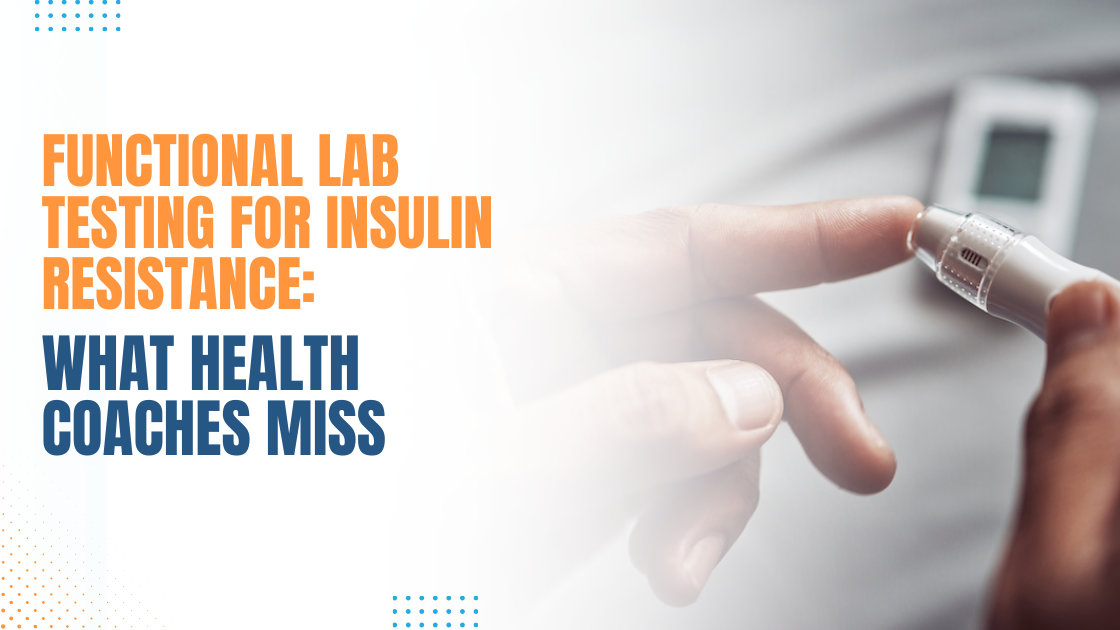In this comprehensive interview, we spoke with Reed Davis, founder of Functional Diagnostic Nutrition® (FDN) and an experienced health professional who brings a unique perspective to the health coaching landscape. Having personally obtained NBHWC certification and developed the FDN training program, Davis breaks down the fundamental differences between these two pathways and helps aspiring health professionals understand which route might best align with their career goals.
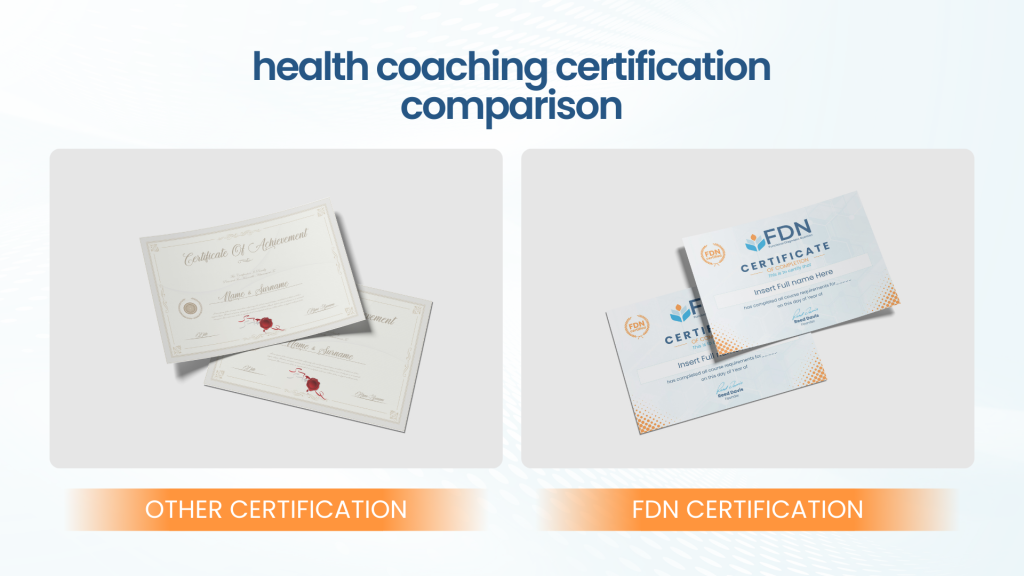
Understanding NBHWC Certification: The Medical Model Approach
What Does NBHWC Stand For and Why Does It Exist?
The National Board for Health and Wellness Coaching (NBHWC) was established to create standards for health coaching within the healthcare system. According to Davis, “That organization, which I think is great, was founded around providing some standards for health coaching, primarily focused on medical assistance, helping provide physicians with some lifestyle coaching for their patients.”
The NBHWC certification exists primarily to integrate health coaches into traditional medical settings, where they can support physicians by helping patients with lifestyle modifications and treatment compliance.
Core Competencies of NBHWC-Certified Coaches
NBHWC-certified health and wellness coaches develop exceptional interpersonal and motivational skills. Davis, who went through an NBHWC-accredited program himself, notes: “The communication skills were excellent – active listening, figuring out why a person wants to get better, motivational approaches and techniques.”
Key skills include:
- Active listening and relationship building
- Motivational interviewing techniques
- Behavior change coaching
- Goal setting and accountability
- Patient compliance support
However, there’s a significant limitation to this approach: “There was zero science other than maybe the science of personal motivation and psychology,” Davis explains. “No assessment skills on the health matter itself, only on the mental emotional matters.”

The Scope and Limitations of NBHWC Practice
NBHWC coaches operate within strict boundaries defined by the medical model. They work “on behalf of a doctor and their diagnosis” and cannot provide independent health assessments. Their role is primarily to help patients comply with medical treatment plans rather than investigate underlying health issues.
Davis points out a concerning trend: “The only study being done on health coaching by the National Institutes of Health is looking at how much a health coach contributes to medication compliance.” This highlights how the NBHWC model positions coaches as extensions of medical treatment rather than independent health investigators.
FDN Practitioner: The Investigative Approach to Functional Health
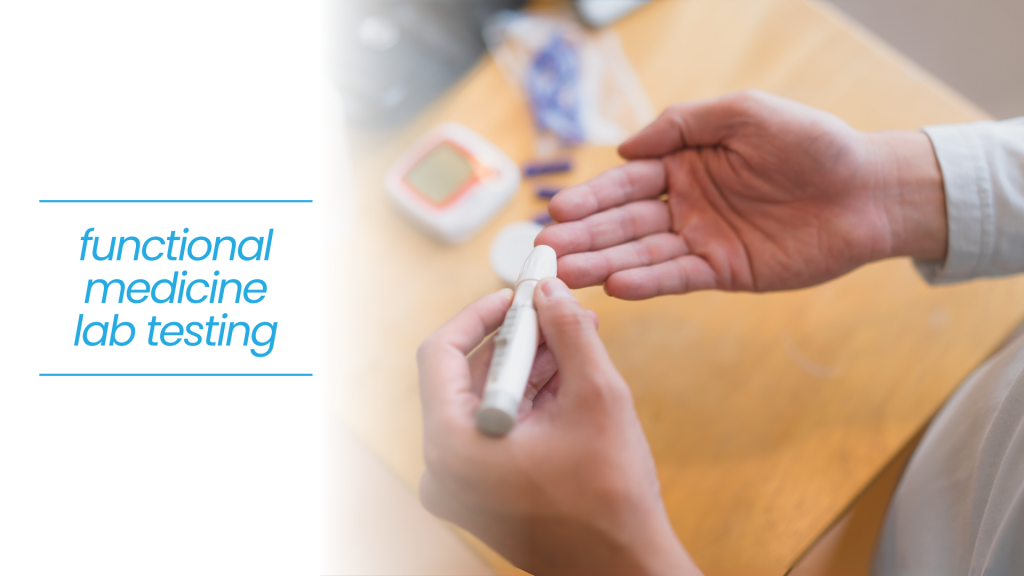
What Is Functional Diagnostic Nutrition®?
Functional Diagnostic Nutrition represents a fundamentally different approach to health coaching. “FDN training is designed to give the practitioner all of the skills and knowledge required to investigate the underlying causes of people’s health problems versus just management of disease or treatment of symptoms only,” Davis explains.
The FDN methodology emerged from Davis’s 10 years of clinical experience running thousands of functional lab tests on thousands of people, developing a systematic approach to uncovering root causes of health dysfunction.
The Science-Based Foundation
Unlike NBHWC programs, the FDN program is “totally based in science – anatomy, physiology, and biochemistry.” Students learn to:
- Interpret functional lab tests including saliva, urine, blood, and stool analysis
- Understand metabolic processes and how they affect health
- Identify multiple causal factors contributing to health issues
- Correlate lab findings with individual client presentations
- Design personalized protocols based on scientific data
The D.R.E.S.S. Protocol: Individualized Health Solutions
FDN practitioners use the D.R.E.S.S. framework to create personalized health protocols:
- Diet – Customized nutrition based on metabolic typing and lab results
- Rest – Individualized sleep and recovery strategies
- Exercise – Tailored physical activity recommendations
- Stress reduction – Comprehensive stress management addressing mental, emotional, physical, and chemical stressors
- Supplementation – Targeted nutritional support based on identified deficiencies and imbalances
“When you investigate and identify the causal factors, you’re not going to get the same results if you’re just going to throw supplements at a problem,” Davis emphasizes. “That’s why the lab work is so important – to individualize your protocols.”
Key Differences in Training Focus and Approach
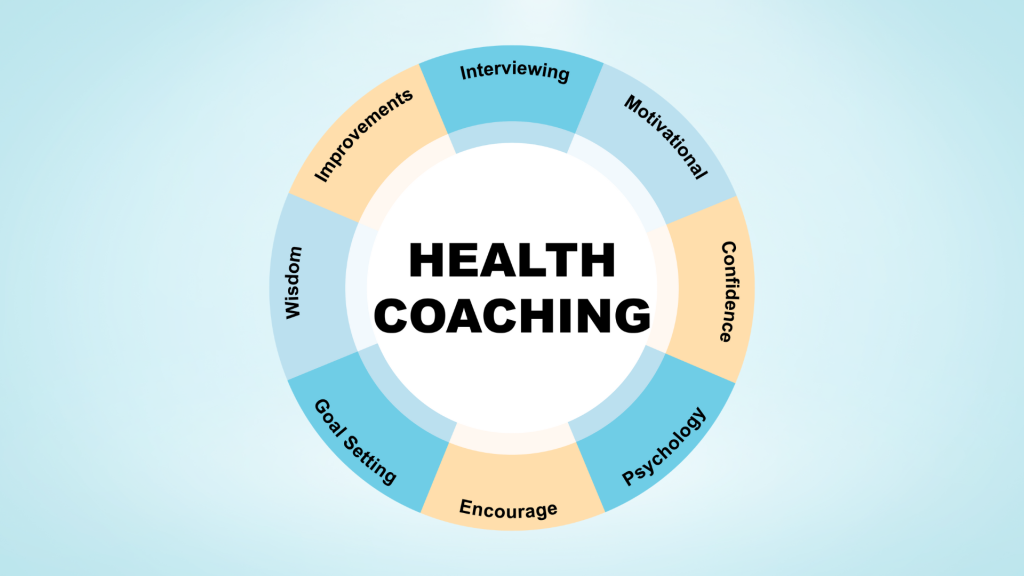
Primary Goals: Compliance vs. Investigation
The fundamental difference lies in each program’s primary objective:
NBHWC Goal: Create standards that fit within the medical model, helping patients comply with doctor’s orders and treatment plans.
FDN Goal: Train practitioners to investigate underlying causes of health dysfunction and empower clients to address root causes through lifestyle modifications.
Science vs. Behavior Change Emphasis
NBHWC Programs: Heavy emphasis on behavior change techniques with minimal scientific health education. “Very little to none” science content, according to Davis.
FDN Program: Extensive scientific education in anatomy, physiology, and biochemistry, with behavior change skills integrated into protocol implementation and client support.
Tools and Methodologies
NBHWC coaches rely primarily on:
- Motivational interviewing
- Goal-setting frameworks
- Accountability systems
- Compliance tracking
FDN practitioners utilize:
- Functional lab testing
- Metabolic typing assessments
- Scientific data interpretation
- Personalized protocol development
- Identifying causes of dysfunction
Quick Comparison: NBHWC vs. FDN at a Glance
| Aspect | NBHWC Certification | FDN Practitioner |
| Primary Focus | Behavior change & compliance | Upstream causal factor investigation |
| Client Relationship | Client as expert, coach as guide | Practitioner as expert consultant |
| Scientific Training | Minimal | Extensive (anatomy, physiology, biochemistry) |
| Lab Testing | Not permitted | Core competency |
| Work Setting | Medical offices, hospitals, independent practice | Independent practice, integrative clinics, functional health practices |
| Client Protocols | Follow doctor’s orders | Design personalized protocols |
| Training Duration | Varies (typically 6-12 months) | 6-10 months |
| Career Path | Employee in healthcare system, entrepreneur | Entrepreneur/independent practitioner, employee integrative medicine |
| Income Potential | Salary-based, $25-50 hourly rate as employee or contractor | Unlimited entrepreneurial potential, freelancer, independent contractor, salary based role |
Practitioner-Client Relationship: Guide vs. Expert Consultant

The NBHWC Philosophy: Client as Expert
One of the fundamental philosophical differences between NBHWC and FDN approaches lies in the practitioner-client relationship dynamic. According to NBHWC principles, the client is considered the expert in their own life and health journey. NBHWC-certified coaches operate from the belief that clients possess the inherent wisdom and knowledge about what’s best for them.
In this model, health and wellness coaches serve as guides and facilitators who:
- Help clients discover their own solutions
- Use questioning techniques to draw out client insights
- Support clients in finding their own motivation and commitment
- Avoid providing direct advice or recommendations
- Focus on the client’s self-discovered goals and action plans
This approach emphasizes client autonomy and self-directed change, with the coach acting as a supportive partner rather than an authoritative expert. The NBHWC coach’s role is to create a safe space for exploration and help clients tap into their own internal resources for healing and change.
The FDN Approach: Practitioner as Expert Consultant
In contrast, FDN practitioners position themselves as expert consultants whom clients specifically seek out for their specialized knowledge and expertise. Clients come to FDN practitioners precisely because they want professional insights, data-driven assessments, and expert recommendations they cannot access on their own.
FDN practitioners operate as knowledge experts who:
- Provide specific recommendations based on lab findings
- Interpret complex scientific data that clients cannot understand themselves
- Design personalized protocols using specialized knowledge
- Offer expert guidance on which interventions to implement
- Take responsibility for the investigative and assessment process
“Clients seek us for our expertise to provide not only guidance but recommendations as well,” explains the FDN methodology. This approach recognizes that while clients are experts in their own experience and symptoms, they often lack the technical knowledge needed to understand the underlying biochemical and physiological factors contributing to their health challenges.
When Each Approach Works Best
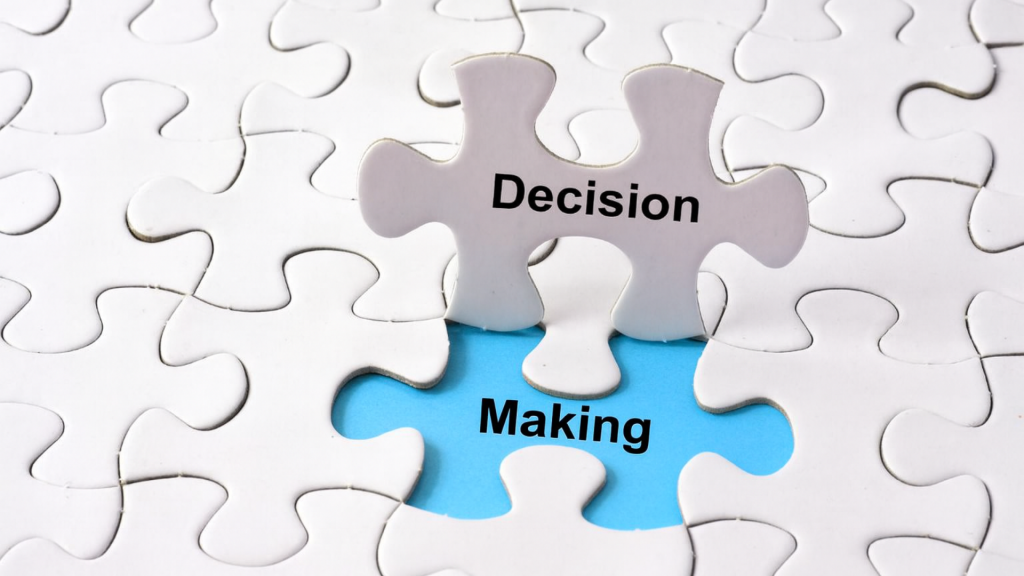
The NBHWC Guide Model is most effective when:
- Clients have straightforward lifestyle goals
- The primary challenge is motivation and behavior change
- Clients are working within established medical treatment plans
- Simple habit formation and accountability are needed
- Clients prefer to maintain full control over their health decisions
The FDN Expert Consultant Model excels when:
- Clients have complex, chronic health issues
- Multiple practitioners have been unable to provide answers
- Scientific investigation and lab work are necessary
- Clients specifically want expert recommendations and protocols
- Data-driven solutions are preferred over trial-and-error approaches
The Impact on Client Outcomes
This philosophical difference significantly impacts the type of results each approach can achieve:
NBHWC outcomes typically focus on:
- Improved adherence to existing treatment plans
- Better lifestyle habits and behaviors
- Enhanced motivation and goal achievement
- Increased self-awareness and personal responsibility
FDN outcomes typically include:
- Resolution of underlying health dysfunctions
- Elimination of chronic symptoms
- Personalized protocols that address root causes
- Scientific understanding of individual health patterns
Choosing Based on Your Natural Approach
Consider your natural inclination when working with people who have health challenges:
Do you prefer to: Guide people to find their own answers, or provide expert recommendations based on scientific assessment?
Are you more comfortable: Facilitating client self-discovery, or taking responsibility for investigating and solving complex health puzzles?
Do you believe: Clients always know what’s best for them, or that specialized expertise is often necessary to uncover hidden health factors?
Your answers to these questions can help determine which approach aligns better with your personality, strengths, and professional vision.
These fundamental differences in training naturally lead to distinctly different approaches to the practitioner-client relationship itself.
Scope of Practice: What Each Can and Cannot Do
Lab Testing and Assessment Authority
Beyond these philosophical differences, one of the most significant practical differences is in diagnostic capabilities:
NBHWC coaches cannot order or interpret lab tests independently. They work within the confines of medical diagnoses and treatment plans provided by licensed physicians.
FDN practitioners can legally order and interpret functional lab tests. “Absolutely, we do it,” Davis confirms. “Anyone can run tests with the intention of finding out what’s really wrong for a person. That data is yours – whether you’re a health coach or the client.”
In 2008, Davis created one of the first direct-to-consumer lab testing programs, specifically enabling non-licensed practitioners to access functional testing for their clients.
Protocol Development and Implementation
NBHWC coaches implement protocols designed by medical professionals, focusing on adherence to prescribed treatments.
FDN practitioners design comprehensive, individualized protocols based on lab findings and scientific assessment, taking full responsibility for the investigative and recommendation process.
Ideal Client Profiles for Each Approach

NBHWC Coaching Clients
NBHWC coaches work best with clients who:
- Are already working with medical professionals
- Need support with lifestyle habit changes
- Require accountability for medical treatment compliance
- Benefit from motivational coaching within established treatment parameters
“Anyone that needs help with diet and exercise and habits – getting rid of poor habits and adopting new habits,” Davis notes. However, he cautions that this approach may miss underlying dysfunctions: “If you’re really dysfunctional, there’s a lot of causal factors that might be ignored.”
FDN Practitioner Clients
FDN practitioners excel with clients who:
- Have complex, multi-system health issues
- Have been through multiple practitioners without resolution
- Want to understand the root causes of their symptoms
- Are motivated to make significant lifestyle changes
- Prefer data-driven approaches to health improvement
“The ideal FDN customer is someone who’s willing to change some things, who’s got a health problem – something about the way they look or feel – and is willing to change it and really wants to change it,” Davis explains. “Especially when nothing else has worked for you.”
Career Opportunities and Professional Pathways
NBHWC Career Trajectories
NBHWC-certified coaches typically find employment in:
- Medical offices and clinics
- Hospital wellness programs
- Corporate wellness initiatives
- Insurance-based health coaching programs
- Telehealth platforms supporting medical care
These positions often involve working as part of a medical team, with structured protocols and oversight from licensed healthcare providers.
FDN Practitioner Career Paths
FDN practitioners have broader professional options:
Independent Practice: Many FDN graduates build successful solo practices, offering comprehensive functional health assessments and personalized protocols.
Collaborative Settings: Work alongside chiropractors, naturopaths, and other alternative practitioners in integrative clinics.
Corporate Opportunities: Progressive companies seeking advanced wellness programs hire FDN practitioners for their scientific expertise.
International Practice: The ability to work remotely with functional lab testing enables global practice opportunities.
Teaching and Mentoring: Experienced practitioners often expand into education and mentoring roles within the FDN community.
Income and Lifestyle Considerations
Davis emphasizes the financial and lifestyle benefits of FDN practice: “You got your freedom to work your own schedule, geographical freedom anywhere there’s an internet connection, emotional freedom from rewarding work, and financial freedom to afford a personal trainer and organic food and live where you like to live.”
The entrepreneurial nature of FDN practice allows practitioners to:
- Set their own pricing structures
- Choose their client base
- Work from anywhere with internet access
- Scale their practice according to personal goals
- Maintain work-life balance through flexible scheduling
Combining Both Certifications: Is It Worth It?
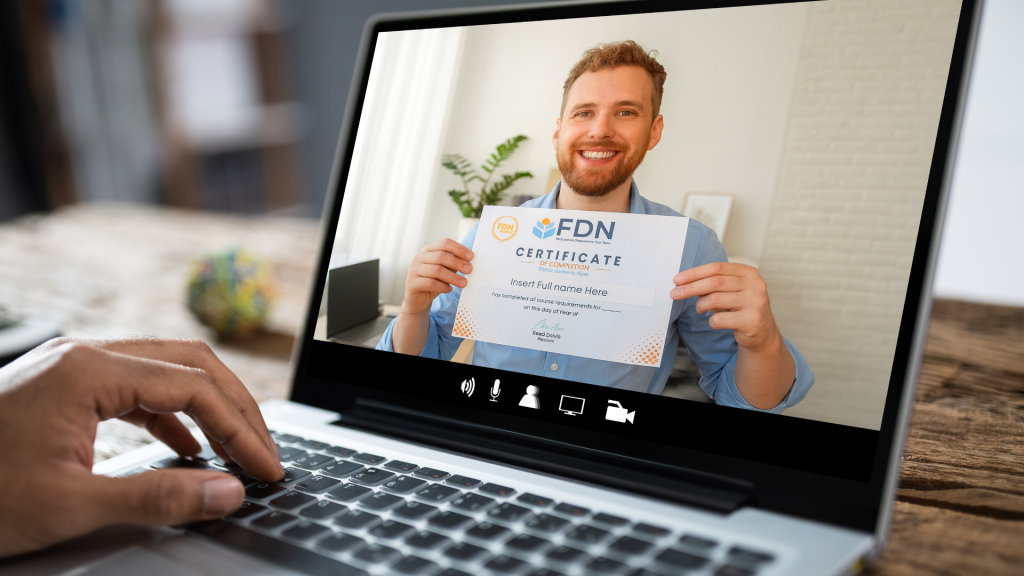
The Strategic Advantage
Davis strongly recommends that NBHWC coaches consider adding FDN training: “If you’re an NBHWC, you should take the FDN program because now you’ll be cooking with gas. Not only will you have all the coaching skills and motivational skills and commitment skills and communication skills of an NBHWC, you’ll also have the ability to run the labs, find out what’s really wrong with the person.”
This combination provides:
- Enhanced coaching skills from NBHWC training
- Scientific assessment capabilities from FDN education
- Broader career opportunities in both medical and independent settings
- Increased client success rates through comprehensive approaches
The Reverse Combination
For those considering FDN first, Davis suggests the additional NBHWC certification may be unnecessary: “If you’re FDN, you probably don’t need the NBHWC course. There’s lots of ways to develop those coaching skills.”
FDN training includes practical coaching elements focused on protocol implementation and client support, which may be sufficient for many practitioners.
Decision-Making Framework: Choosing Your Path
Critical Questions to Ask Yourself
Davis poses the fundamental question every aspiring health professional should consider: “Do you want to be coaching your customers based on doctor’s orders, or based on the labs and investigation that you’ve done with a very high degree of accuracy and skill and knowledge?”
Additional considerations include:
Scientific Interest: “Am I willing to learn the anatomy, physiology, and biochemistry so that I truly understand what a person’s problems are?”
Practice Model Preference: Do you prefer working within established medical systems or developing independent protocols?
Client Population: Are you drawn to supporting medical compliance or investigating complex health mysteries?
Career Goals: Do you prioritize job security within medical systems or entrepreneurial freedom?
Learning Style: Do you prefer behavior-focused training or science-heavy education?
Making the Right Choice
The decision ultimately depends on your professional vision and personal strengths. Davis summarizes: “If you don’t want to learn anatomy, physiology, and biochemistry and you just want to help that patient follow doctor’s orders, then go the other way.”
For those drawn to investigation, problem-solving, and scientific assessment, FDN offers a pathway to become what Davis calls “that investigator” who can “find out what’s really wrong” and “teach them how to fix it.”
The Future of Functional Health Practice
Industry Evolution
Davis sees FDN as representing the future evolution of healthcare: “The final evolution is actually FDN – we’re what medicine is evolving into, to the benefit of the public.” This perspective positions FDN practitioners at the forefront of a healthcare transformation toward root-cause medicine and personalized protocols.
Meeting Growing Demand
As more people seek alternatives to symptom-focused medical care, the demand for practitioners who can identify underlying causes and provide personalized solutions continues to grow. FDN practitioners are uniquely positioned to meet this demand with their combination of scientific training and practical coaching skills.
Frequently Asked Questions
Can I practice functional health coaching without a medical license?
Yes, FDN practitioners can legally order and interpret functional lab tests without a medical license through direct-to-consumer lab programs specifically designed for non-licensed practitioners.
Which certification is better for working in hospitals?
NBHWC certification is generally preferred in traditional medical settings like hospitals, where coaches work under physician supervision to support treatment compliance.
How long does each program take to complete?
Both programs typically take 6-12 months to complete, though specific requirements and timelines may vary by institution.
Can I work internationally with these certifications?
FDN practitioners often have more flexibility for international practice due to their ability to work remotely with functional lab testing. NBHWC coaches may face more restrictions depending on local healthcare regulations.
What’s the income difference between the two paths?
NBHWC coaches typically work in salaried positions within healthcare systems, while FDN practitioners have unlimited income potential as entrepreneurs setting their own rates and building independent practices.
Key Takeaways: Making Your Decision
The choice between NBHWC certification and FDN training represents a fundamental decision about practice philosophy and career trajectory. Consider these final points:
Choose NBHWC if you:
- Prefer working within established medical systems
- Excel at motivational coaching and behavior change
- Want the security of traditional employment
- Are comfortable working under physician oversight
Choose FDN if you:
- Are drawn to scientific investigation and identifying where the body has lost function
- Want entrepreneurial freedom and unlimited income potential; or
- Want to work in a functional medicine practice
- Prefer designing personalized protocols based on data
- Seek to work with complex, chronic health conditions
Consider both if you:
- Want maximum career flexibility
- Enjoy both coaching and scientific analysis
- Plan to work in diverse healthcare settings
- Seek to maximize your impact on client outcomes
Your Next Steps
Ready to advance your health coaching career? Here’s how to move forward:
- Assess your interests: Take time to honestly evaluate whether you’re more drawn to behavior coaching or scientific investigation
- Research programs: Compare specific NBHWC-approved programs and FDN training options
- Connect with practitioners: Speak with professionals in both fields to understand day-to-day realities
- Consider your goals: Align your choice with your long-term career and lifestyle objectives
As Davis concludes: “We invite anyone who’s interested in helping others and really wants to be able to get to the underlying causes and work at that level… they’ve got a place to go and a community to join and live the life that you want to live, walk your talk and be happy helping people.”
The choice is ultimately yours – but understanding these fundamental differences ensures you can make an informed decision that aligns with your vision for your health coaching career.
Ready to explore functional health training?
Learn more about FDN programs and discover how functional lab testing can transform your practice and your clients’ results. Learn how we use functional labs to identify healing opportunities.

